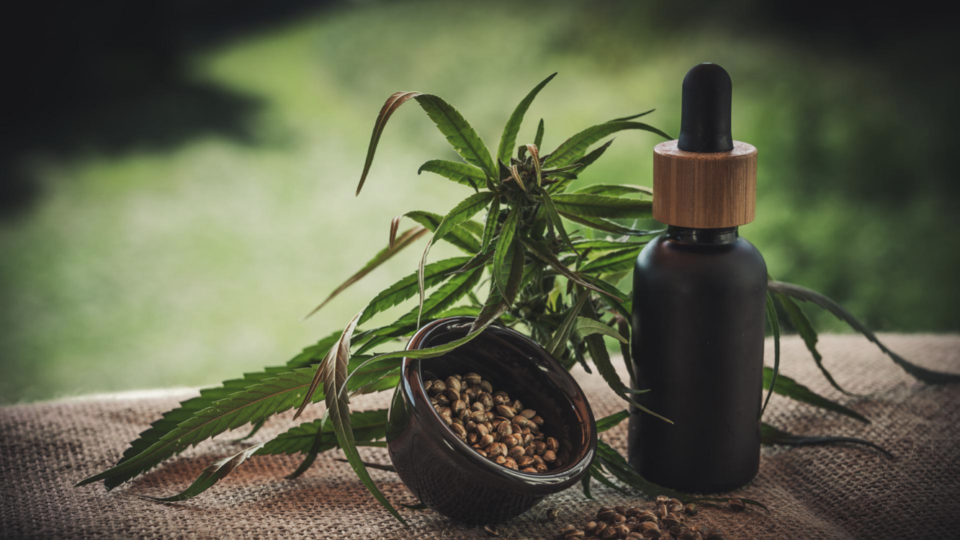The Hong Kong government is proposing legislation that would classify cannabidiol (CBD) as a dangerous drug after a growing number of CBD products in the market were found to contain a psychoactive component of cannabis.
Under the proposal to include CBD in the Dangerous Drugs Ordinance are prohibitions against manufacturing, importing, exporting, supplying, selling, possessing and transporting CBD, including any products containing CBD, according to documents recently submitted to the Legislative Council by the Narcotics Division of the Security Bureau.
However, those who are prescribed such products for medical purposes or have a license issued by the Department of Health can be exempted.
A cannabinoid found naturally in the cannabis plant, pure CBD is not psychoactive, does not cause euphoric feelings and is not associated with abuse potential.
In recent years, different types of CBD products, including food, health supplements, skincare and beauty products, have become increasingly available around the world and in Hong Kong, for both human and pet consumption.
Many of them claim to provide health benefits.
But the Narcotics Division says that around one-third of the CBD products seized by the Hong Kong Police Force and the Customs and Excise Department in recent years, totaling more than 4,100 items, were also found to contain tetrahydrocannabinol (THC).
THC is the major psychoactive substance found in cannabis. Some research has shown that consumption of THC by humans can lead to physical dependence and a range of health hazards, including addiction, hallucinations, heightened risks of cancer and respiratory diseases if used with tobacco, heart attacks and strokes in young cannabis users.
“The positive results of THC found in CBD products reflect the scientific finding that THC is likely present in CBD products which are prepared from CBD isolates,” the Narcotics Division document read.
It added there is evidence that CBD may naturally decompose into THC, or CBD can also be purposely converted into THC.
Citing scientific advice from the Government Laboratory, the Narcotics Division said it is very difficult to isolate pure CBD from cannabis, and it would not be practical to completely remove THC impurities from CBD isolates.
The document also noted that frontline social workers have told the Narcotics Division that “many members of the public are confused about cannabis and CBD, and some youngsters are particularly eager to try out CBD products which may lead to cannabis abuse.”
“The fact that CBD products may likely contain THC, as remnants of extraction from cannabis or through natural decomposition under normal storage conditions, is clearly at odds with the law and our policy,” said the division.
Hence, it proposed bringing CBD under the control of clear legislation, which would cover both CBD extracted from cannabis and synthetic CBD.
The Narcotics Division said it would consult relevant stakeholders before tabling the relevant legislation within 2022, so as to give a reasonable amount of time thereafter for suppliers to dispose of their products before the amendment comes into operation.
Cannabis, cannabis resin, THC and certain other cannabinoids are currently controlled under the Dangerous Drugs Ordinance. Those trafficking (including importing and exporting) and manufacturing substances in contravention of the law are subject to a maximum penalty of life imprisonment and a fine of HK$5 million (US$637,271), while the maximum penalty for possession and consumption of such substances is seven years’ imprisonment and a fine of $1 million (US$127,446).




